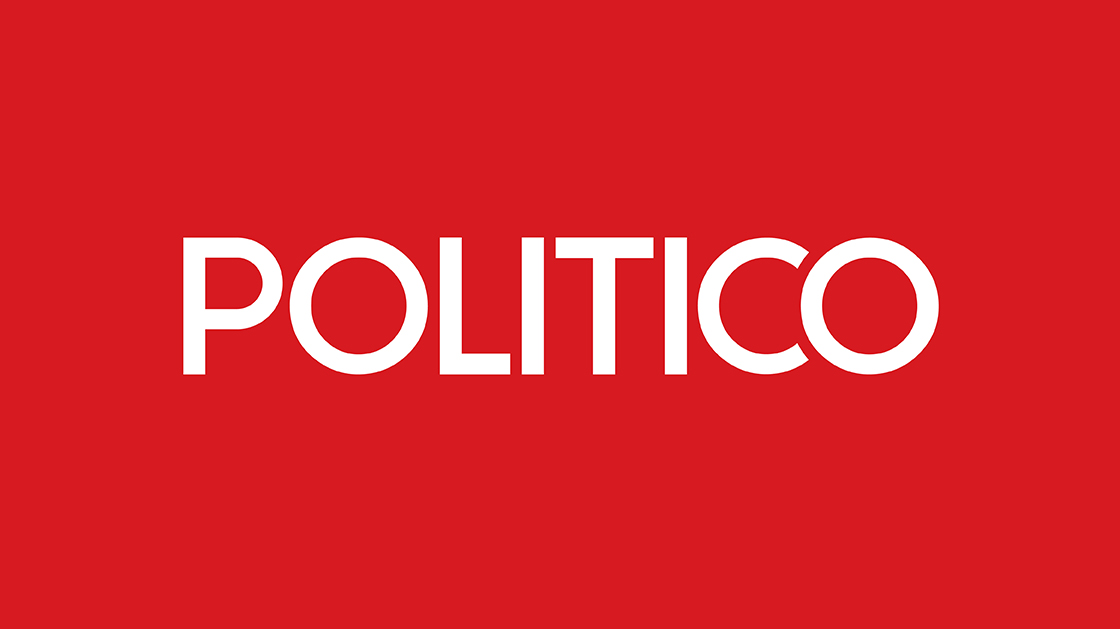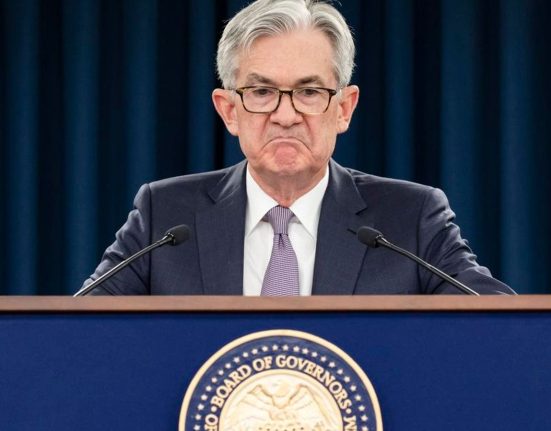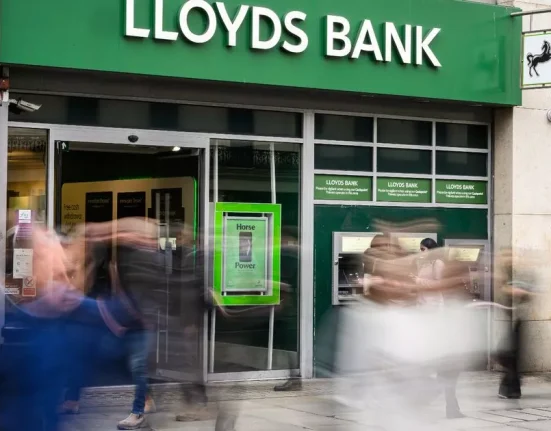Editor’s note: Morning Money is a free version of POLITICO Pro Financial Services morning newsletter, which is delivered to our subscribers each morning at 5:15 a.m. The POLITICO Pro platform combines the news you need with tools you can use to take action on the day’s biggest stories. Act on the news with POLITICO Pro.
The Trump administration has spent months working to undo Biden-era policies loathed by big banks — such as restrictions on credit card late fees or overdraft charges. The CFPB’s “open banking” rule governing consumer data access, finalized last year by Director Rohit Chopra, by all indications was on that same chopping block.
In May, Acting CFPB Director Russ Vought dropped the agency’s defense of the rule in court and joined with big banks in urging a federal judge to nullify the policy entirely.
But in a last-minute twist that’s becoming a hallmark of Trump’s second term, the crypto world stepped in.
Top digital asset trade associations joined with retailers and fintech groups in urging the White House to preserve the Biden-era rule. Crypto billionaire Tyler Winklevoss took to social media to blast banks like JPMorgan Chase for fighting against the rule. David Sacks, Trump’s crypo and AI czar, called the situation “concerning.” And the president’s son, Donald Trump Jr., who’s also involved in crypto ventures, offered his public support, too.
The result? The CFPB quickly halted its push to get a judge to kill the rule and is poised to launch an “expedited” rulemaking to rework the policy. The bureau in the coming days is expected to release regulatory notice soliciting public input on key questions about how to reshape the policy.
A CFPB spokesperson said that the administration had always planned to write a new rule governing consumer data on an accelerated basis.
The crypto industry’s ascendant clout in Washington adds a new wrinkle to the fight over the CFPB’s “open banking” rule as the bureau goes back to the drawing board on the policy.
The Biden regulation was finalized after years of debate over how the CFPB should implement section 1033 of the Dodd-Frank Act, which gives consumers the right to access their financial data.
The rule set the ground rules of a long-running battle between traditional financial institutions and fintech firms over how consumer data flows across an increasingly complex financial ecosystem of payment services and financial apps, which now include services offered by a wide range of crypto companies. Fintechs and crypto firms rely on that data-sharing — transferred through middleman data aggregators — to power their services and make it easy for customers to set up accounts and move money.
A major sticking point in any future policy will be whether and how much a bank can charge financial technology firms for access to its customers’ data. Such fees are prohibited under the current Biden-era rule, and fintech and crypto companies say it’s important to keep requiring banks to make available that data for free.
“Open banking and consumer permissioned data-sharing are foundational to America’s financial future — driving innovation, expanding competition, and empowering consumer choice,” said Penny Lee, president and CEO of the Financial Technology Association. “Recent moves by the nation’s biggest banks to impose fees on data access underscore the need for clear rules of the road for open banking.”
Banks say that they need to have the ability to charge for access to data infrastructure that they invest heavily in and are responsible for keeping secure.
“Our position is clear and has not changed: maintaining the safety and security of sensitive consumer financial data has always been and will continue to be our number one priority,” said Paige Pidano Paridon, co-head of regulatory affairs at the Bank Policy Institute, which brought the legal challenge against the rule. “One big outstanding question is why banks would still be expected to comply with the current rule that the CFPB has said it is going to substantially overhaul. This bizarre procedural situation is creating confusion and needs to be resolved.”
It’s Thursday — For econ policy thoughts, Wall Street tips, personnel moves or general insights, email Sam at [email protected].
Tariff rapid fire: President Donald Trump said Wednesday he’ll impose 100 percent tariffs on tens of billions of dollars of imported semiconductors used in consumer electronics and other products, but indicated he would not charge companies that commit to making chips in the U.S., Doug Palmer reports.
Trump made the announcement at an event alongside Apple CEO Tim Cook, who said his company would increase its investment in the U.S. by $100 billion.
Trump imposed an additional 25 percent in tariffs on India over the country’s purchases of Russian oil, following through on his threat to ramp up pressure on Moscow to end the war in Ukraine. As our trade team colleagues report, those tariffs will add to the 25 percent levy Trump unveiled on India this month.
Bank execs at the White House: Citi CEO Jane Fraser and Bank of America CEO Brian Moynihan met with Trump on Wednesday to discuss plans to privatize mortgage giants Fannie Mae and Freddie Mac, Reuters reports.
Moynihan’s visit to the White House also comes after Trump earlier this week personally called out the executive, accusing Bank of America of rejecting him as a customer after his first term.
U.S. targets popular Mexican “narco-rapper” — The Trump administration on Wednesday sanctioned a popular Mexican rapper, El Makabelico, accusing him of laundering money on behalf of a major drug cartel operating in the country.
The Treasury Department said the rapper, whose real name is Ricardo Hernandez Medrano, sent 50 percent of his royalties from streaming platforms directly to the Cartel del Noreste and that his concerts were used to launder money to the organization.
A spokesperson for YouTube, where he had nearly 2.8 million subscribers, said the company “terminated YouTube channels associated with the sanctions” announced earlier on Wednesday. A spokesperson for Spotify, where El Makabelico had more than 3 million monthly listeners, said the company was “reviewing the decision” and would comply with any legal obligations.
Still seeing SVB ripples — Sens. Bill Hagerty (R-Tenn.) and Angela Alsobrooks (D-Md.) are pushing to amend the must-pass defense authorization bill to extend deposit insurance to transaction accounts used by businesses and municipalities. Under their bipartisan amendment, deposits would be backed by the Federal Deposit Insurance Corp. for up to $20 million if they’re parked at institutions with less than $250 billion of assets.
In separate statements, Hagerty said the amendment is “vital to strengthening regional and community banks.” Alsobrooks said the change to deposit insurance would protect payroll accounts used by small businesses. In a speech earlier this year, Treasury Secretary Scott Bessent said that the administration planned to work with Congress to extend deposit insurance to business payment accounts.
New push to overhaul SBA loans: Sens. Todd Young (R-Ind.) and Amy Klobuchar (D-Minn.) introduced two pieces of legislation that would expand and modernize the Small Business Administration’s 504 loans, one of the agency’s more popular lending programs, Katherine Hapgood reports.
A deep dive on who uses the CFPB: “Data obtained by ProPublica through a public records request shows that many of the same Republican members of Congress who have targeted the CFPB for cuts have collectively routed thousands of constituent complaints to the agency.”
Deposit milestone: The Community Development Bankers Association and National Bankers Association announced that a new initiative to channel funding to banks serving low-income and minority banks had reached $100 million of bank deposits. The program, which relies on IntraFi, makes it easy for large depositors seeking to maximize FDIC insurance to place funds at more than 80 participating community development financial institutions and minority depository institutions.
Parker Mantell is now chief speechwriter and comms adviser to SEC Chair Paul Atkins. He previously was executive writer to the president at Yale University and is an NRSC press and Cavalry LLC alum. — Daniel Lippman







